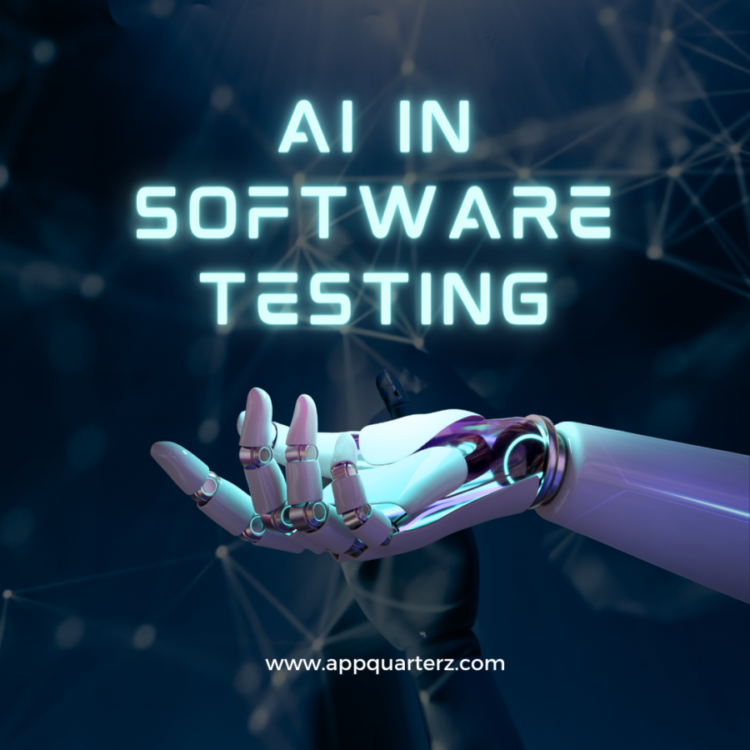As technology continues to evolve, the software development industry is also evolving. Software testing is an essential part of software development, as it helps ensure that the software meets the required quality standards. Traditional software testing methods have been used for many years, but recently, AI testing has emerged as a game-changer. In this article, we will discuss the advantages and limitations of both traditional and AI testing methods and explore the future of software testing.
The Importance of Software Testing
Software testing is a critical stage in the software development lifecycle. It is the process of evaluating the software’s functionality, performance, and reliability to ensure that it meets the required quality standards. Software testing is essential because it helps to identify defects and errors in the software before it is released to the end-users. Without testing, software defects can cause significant problems, such as system crashes, data loss, and security breaches.
Traditional software testing methods have been used for many years. These methods include manual testing, automated testing, and performance testing. While these methods have been useful, they have their limitations.
Traditional Software Testing Methods and Their Limitations
Manual testing is the most common form of software testing. It involves human testers manually executing test cases to identify defects and issues in the software. Manual testing is time-consuming, expensive, and prone to errors. It also requires a significant amount of human resources, which can be a challenge for large-scale projects.
Automated testing, on the other hand, involves using software tools to execute test cases automatically. Automated testing is faster, more reliable, and cost-effective than manual testing. However, it requires a high initial investment in terms of time and resources. Additionally, automated testing tools can only execute tests that they have been programmed to run, which can limit their effectiveness.
Performance testing is another traditional testing method that involves testing the software’s performance under different conditions. Performance testing is essential because it helps identify potential bottlenecks and issues that can affect the software’s performance. However, performance testing can be complex, time-consuming, and expensive.
What is AI Testing?
AI testing is a new testing method that involves using artificial intelligence and machine learning algorithms to test the software. AI testing can be used for various types of testing, including functional testing, performance testing, and security testing. AI testing tools use algorithms to learn from the software’s behavior and identify defects and issues in real-time.
AI testing tools can perform tests faster and more efficiently than traditional testing methods. They can also identify defects that may have been missed by human testers or traditional testing tools. Additionally, AI testing tools can adapt to changes in the software’s behavior, making them more effective at identifying defects.
Advantages of AI Testing
AI testing has several advantages over traditional testing methods. Some of the key advantages include:
- Speed: AI testing tools can perform tests faster than human testers or traditional testing tools. This can help speed up the software development process.
- Accuracy: AI testing tools can identify defects and issues with a high level of accuracy. This reduces the risk of defects and issues being missed and improves the overall quality of the software.
- Scalability: AI testing tools can be scaled up or down based on the size and complexity of the software. This makes them more flexible and adaptable than traditional testing methods.
- Cost-Effective: AI testing tools can be more cost-effective than traditional testing methods, as they require fewer human resources and can be performed more efficiently.
Comparison Between AI Testing and Traditional Testing Methods
There are several differences between AI testing and traditional testing methods. One of the main differences is that AI testing tools can learn from the software’s behavior and adapt to changes in real-time, making them more effective at identifying defects. Additionally, AI testing tools can perform tests faster and more efficiently than traditional testing methods.
Traditional testing methods, on the other hand, require human testers to execute tests manually or use automated testing tools that are limited by the tests they have been programmed to run. While automated testing tools can be more efficient than manual testing, they require a high initial investment in terms of time and resources.
How AI is Revolutionizing Testing
AI is revolutionizing testing by making it faster, more accurate, and more efficient. AI testing tools can perform tests faster and more efficiently than traditional testing methods, reducing the time and resources required for testing. Additionally, AI testing tools can identify defects and issues with a high level of accuracy, improving the overall quality of the software.
AI testing tools can also adapt to changes in the software’s behavior, making them more effective at identifying defects. This is particularly useful for complex software systems, where traditional testing methods may be less effective.
Challenges of AI Testing
While AI testing has many advantages, it also has some challenges that need to be addressed. One of the main challenges is the lack of understanding of how AI testing tools work. As AI testing is a relatively new field, there is a lack of knowledge and experience in using AI testing tools effectively.
Another challenge is the need for high-quality data to train AI testing tools. AI testing tools rely on data to learn from the software’s behavior and identify defects. If the data is of poor quality, the AI testing tool will not be effective.
Finally, AI testing tools require a high level of expertise to use effectively. This can be a challenge for organizations that do not have the necessary expertise in-house.
Future of Software Testing
The future of software testing is likely to be heavily influenced by AI testing. As AI testing tools become more widely adopted, they are likely to become the primary testing method for software development. This is because AI testing tools can perform tests faster, more efficiently, and with a higher level of accuracy than traditional testing methods.
In the future, AI testing tools are likely to become more advanced, with the ability to identify defects and issues that are currently difficult to detect. Additionally, AI testing tools are likely to become more accessible, with a wider range of tools and platforms available to developers.
AI Testing Tools and Platforms
There are several AI testing tools and platforms available on the market today. Some of the most popular include:
- Testim: Testim is an AI testing tool that uses machine learning to identify defects and issues in software.
- Functionize: Functionize is an AI-powered testing platform that uses machine learning to improve the accuracy and speed of testing.
- Applitools: Applitools is an AI-powered visual testing platform that uses machine learning to identify defects and issues in software.
Conclusion: The Role of AI in the Future of Software Testing
AI testing is the future of software testing. AI testing tools can perform tests faster, more efficiently, and with a higher level of accuracy than traditional testing methods. As AI testing tools become more widely adopted, they are likely to become the primary testing method for software development. However, there are still challenges that need to be addressed, such as the lack of understanding of how AI testing tools work and the need for high-quality data to train them.
Organizations that invest in AI testing tools and platforms are likely to reap the benefits of faster, more efficient, and more accurate software testing. As AI testing tools become more advanced, they are likely to be able to identify defects and issues that are currently difficult to detect, improving the overall quality of the software. If you’re interested in learning more about AI testing, consider exploring some of the AI testing tools and platforms available on the market today.
Ready to take your software to the next level? Let us help. Schedule a consultation today.
https://appquarterz.com/



